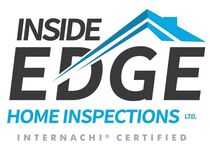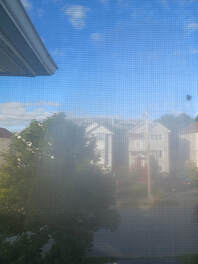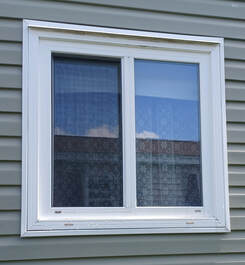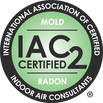Mike's Home Inspector BlogMichael Burfitt |
|
A home inspector looks at all major aspects of the home, including windows which are a significant part of the building envelope. Residential windows are usually constructed of two basic materials: vinyl and wood. Generally, most homes use vinyl windows, with wood windows being far less common as they are more expensive and require regular maintenance. Therefore, most wood windows an inspector sees are usually nearing the end of their lifespan.
There are countless different styles, including: Single/Double Hung (Slides straight up from the bottom/straight down from the top) Casement (Entire window usually pivots outside) Horizontal Slider Awning/Hopper (Segment that opens in or out respectively) Fixed (Doesn’t open) Jalousie (Look like mini-blinds and are very rare in Nova Scotia as they are not suitable for our colder climate) The two most common types I see are single hung and casement. There are pros and cons to all types of windows although I personally prefer single hung. Windows can also be single, double, or triple glazed. This refers to the number of panes of glass in a window, which are usually sealed and filled with argon gas to improve efficiency. Most modern windows are either double or triple glazed, with double glazed being the overwhelming choice. Single glazed windows are usually only seen in older homes. So, Should I Replace Old Windows? I will give the typical politician’s answer and say, “it depends”. If an older wooden window has rotted, it is usually a good idea to invest in new windows. However, if a single glazed window regardless of age or type is in good shape, the savings in energy efficiency by replacing it with a modern double glazed window will likely be far less than the cost of replacing the entire window. A qualified contractor can give you a clearer (no pun intended) idea as to the best option for your situation. One of the requirements of an InterNACHI Certified Inspection Company such as Inside Edge is to follow the standards of practice, including section 3.10.III.C., which states we must report any window that was obviously fogged or displayed other evidence of broken seals. A broken seal means that the argon gas used for insulation has escaped. A few options can be utilized to repair this issue: the most obvious one is to replace the window, which while improving both efficiency and aesthetics can be quite costly. Other options include fixing the seal and having a defogging agent applied. These won’t fix the lost insulating value but will get rid of the ugly fogging. New and shiny windows are always nice but are they worth the investment? Hopefully this blog post and a home inspector such as yours truly can point you in the right direction when making that decision. |
Archives
July 2024
Categories
All
|
|
Inside Edge Home Inspections Ltd.
Halifax, NS 902-209-9921 [email protected] Proudly Serving the HRM & Central Nova Scotia |



 RSS Feed
RSS Feed

